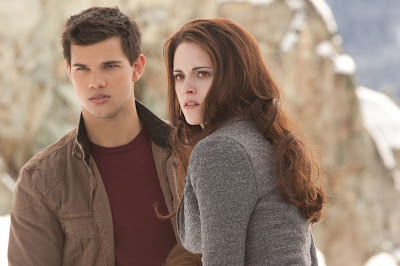The exclamation mark - on leave from Mamma Mia! - may be the giveaway. The best new British sitcom of the year, BBC2's Home Time, came straight out of Coventry, and so it is that, providing the witless yang to the amusing yin, that phoenix-like city should also give rise to Nativity!, one of 2009's direst movie experiences. Your heart goes out to Martin Freeman, doing his level best to salvage anything worthwhile as a primary school teacher pressganged into overseeing another Christmas play with a new, childish classroom assistant (Marc Wootten, terrible) and finding himself in a double-bind, having promised the young stars that his producer ex (Ashley Jensen) will be returning from L.A. to see it. "Hollywood is coming to Coventry!," Debbie Isitt's film shrieks at regular intervals; erm, no, sorry guys, it really isn't.
I had some time for Isitt's previous Nasty Neighbours (rough-edged social comedy in the Mike Leigh mode) and Confetti (a Brit stab at Christopher Guest), but the cast gathered here set up comic expectations the U certificate cannot deliver on, heavy-handed editing cuts around any improvisational freshness, and the whole comes in regrettably close to prime-time ITV for comfort. A bauble like this needs the high-gloss treatment - if not the full Minnelli, than the tinsel and spray-on snow Richard Curtis bought in bulk for Love, Actually; with the budget blown on the final nativity sequence, Isitt's first hour and twenty minutes are allowed to proceed in depressingly threadbare fashion, as Christmassy as the display in Poundland's window.
The young performers look as though they'd rather get back to the funny business of double maths, and their (dubbed?) musical turns bring back terrible memories of the Mini Pops, while the cameos are a decidedly mixed bag. Ricky Tomlinson momentarily lifts the spirit as an unlikely Mayor, but Alan Carr - forever gazing upwards in reaction shots - is the least convincing Coventry Evening Telegraph journalist in history, there's an unfortunate appearance from recently jailed news reporter Ashley Blaker that might have been better left on the cutting-room floor (if good taste had ever been a concern here), and it gets unfathomably surreal when Lester Freamon from The Wire turns up as the world's most accommodating studio executive. The manic, forced jollity proves exhausting: it's the multiplex equivalent of the man at the office party wearing the novelty Santa hat, only here you have to spend a full two hours in the room with it.
(November 2009)
A sequel, Nativity 2: Danger in the Manger!, opens in cinemas nationwide from Friday.




